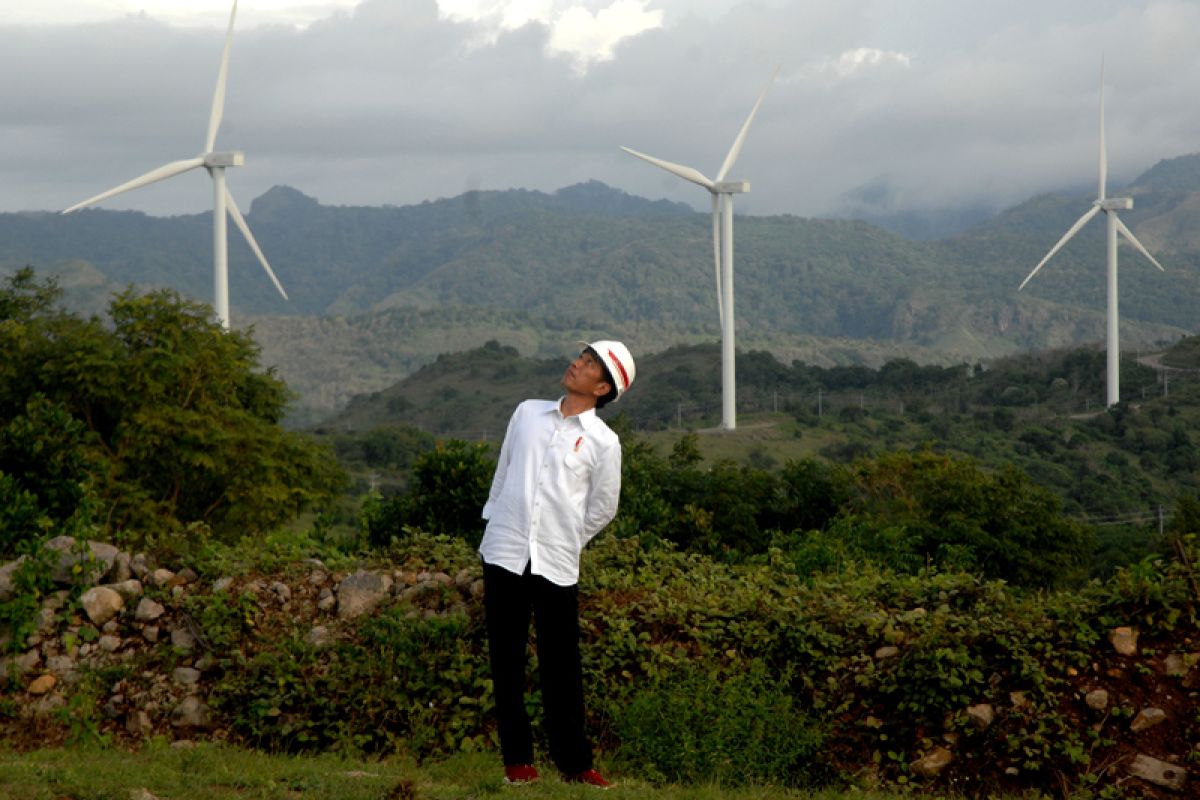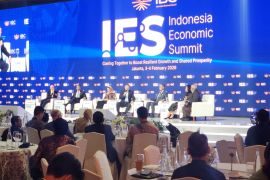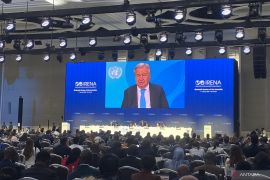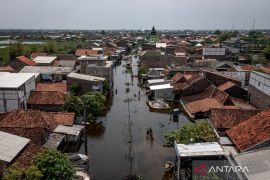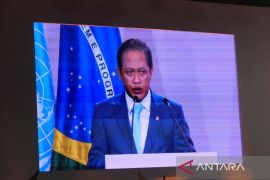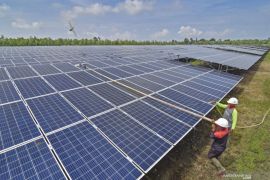The Intergovernmental Panel on Climate Change (IPCC) in its latest report, called on a number of countries to be more ambitious in their target of reducing gas emissions.
Countries not having many forests are especially expected to work the harder to reduce Greenhouse gas emissions. In Indonesia sooner or later there would be change in the land use, land function and forest function.
Many things to be considered by a country to change the types of energy for consumption from fossil to renewable energy, which is much cleaner.
Danish Ambassador to Indonesia Rasmus Abildgaard Kristeensen said in addition to reducing Greenhouse gas emissions, investing in renewable facility would open many much needed jobs.
It was the same as has taken place in the United States and China, which have also invested heavily in renewable energy projects.
"The reasons are related not just to climate change," Kristeensen said in a panel discussion using the theme of Vision and Experience in Energy Transition heading for low carbon energy system at the Indonesia Energy Transition Dialog Forum 2018 held by the Institute for Essential Services Reform (IESR) in Jakarta, last week.
He said Denmark began the transition toward clean energy in the era of the 1970s. At that time Denmark still was dependent 90 percent on oil for energy, and the price of oil was soaring in the world. The government of that country, therefore, decided to cut imports of fossil fuel.
The condition is similar to what Indonesia is now facing, he said, adding, actually, the reason was not only green house gas emission.
The reason is not only climate change but also to reduce energy consumption, he said.
One main stumbling block coming in the way of transition to clean energy as mentioned by Energy and Mineral Resources Minister Ignasius Jonan, is the huge cost of building renewable energy production facility.
Now, however, clean energy is cheap , even the cheapest such as wind energy.
In Denmark, the process of transition from dirty energy to clean energy took 20 years, he said.
He agreed with the Institute for Essential Services Reform (IESR), think tank advocating the use of renewable energy, that the prices of renewable energy would be cheaper in the coming years.
The issue of technology and other dimensions also became topics of discussion during the transitional period in Denmark, but politically , in the past 20 years, the commitment remains unchanged that it is to use clean energy, Kristeensen said.
"Coal or fossil phase-out was consistently carried on. That was the policy direction in line with energy commitment. Incentives were offered at the start of the transition but now the market is growing that the industry could grow by itself," he said.
Kristeensen said the tender price for the construction of offshore Wind Powered Electric Plant in Denmark is cheaper from year to year, adding competition is the key and in the past four to five years , there were more bidders.
IESR Director Fabby Tumiwa said renewable energy has become the mainstream in many countries.
The reason is the technology price being cheaper and competitive, compared to that of fossil energy, he said, adding the electricity equipment is more energy efficient.
In addition, there is global attempt to reach the target set in the Paris Agreement that is to keep the global temperature below two degrees Celsius, Fabby said.
The disruption capacity of renewable energy technology such as PV (photovoltaic) and wind turbine would be difficult to stop in the future because of the drastic fall in technology price and improved efficiency.
In the 2009-2015 period the price of PV already dropped 80 percent and the International Renewable Energy Agency (IRENA) predicted the price of PV would shrink 60 percent lower by 2025.
Meanwhile the price of wind turbine already shrank 38 percent since 2009. In a number of countries , the price of electricity from renewable energy is cheaper than geothermal power.
Fabby cited the result of the recent Study on Roof Top Solar Power, by GIZ-INFIS and IESR indicated that the decline in the price of PV system by 30-40 percent or with the financial benefit could attract at least 4 million households in Java categorized as early followers - to install roof top solar power - equivalent to 12 to 16 GWp in capacity.
IRENA said the roof top solar power has a potential of 15 GWP until 2030.
Recently Carbon Tracker released a report saying that in 2021 the cost of building solar power generating plant (PLTS) would be lower than building a steam power plant (PLTU) in Indonesia. In 2017 - 2028, building a PLTS would cost lower than building a coal fired power plant (coal PLTU).
Energy and Mineral Resources Minister (ESDM) Ignasius Jonan said he supports development of energy mix or diversification of energy. He said , there are around five million of Indonesian population, who have not been covered by the electrification program.
"This should be taken care first. They have never shared the benefit of electrification in their life, but we already talk much about clean energy," he said.
Certainly everyone agree with the program to use renewable energy, therefore, there is no doubt the program would grow, he added.
A regulation will soon be issued on roof top solar power, and the government will continue to encourage development of geothermal energy, wind energy . and biomass energy. The national power utility company PT PLN is asked to use bio-diesel from crude palm oil to fuel diesel power plants (PLTD) with a total capacity of 1,800 megawatts.
"We have to be fair. Which one is more reasonable in price. Some people say that sea waves energy is cheaper. Well, we just make calculation. The technology is available . It is only about price , reasonable for the people," he said.
Special request also has come from the industrial sector such as Nestle, which wants power entire from renewable energy source.
"It is not important who is the supplier, PLN or other agencies. What is important for them is that the energy is clean," he said.
Therefore, when asked about the Indonesian priority in the program to reduce gas emissions from the energy sector, the answer is related to four aspects - energy must be sufficient in supply, fair distribution of energy, energy price must be reasonable and environmentally friendly.
Reporter: Virna p Setyorini and A Saragi
Editor: Fardah Assegaf
Copyright © ANTARA 2018
